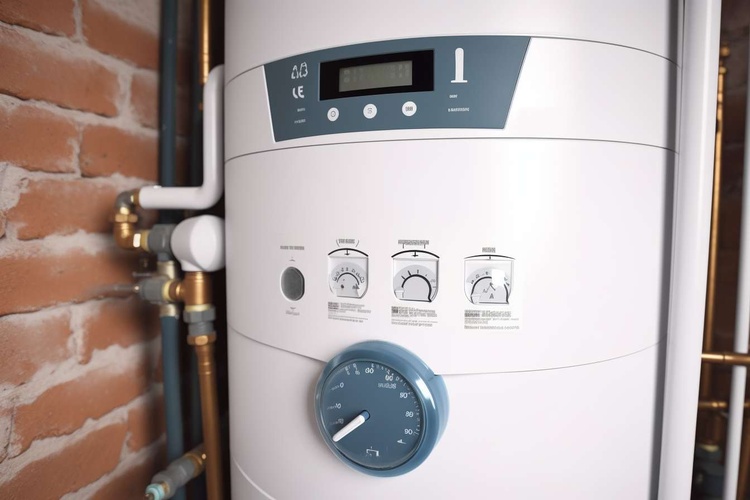Understanding Water Heaters and Boilers: Essentials for Home Comfort
Water heaters and boilers are crucial components of any home's comfort system, providing hot water for various household needs and, in some cases, heating the entire house. While both serve the purpose of heating water, they operate differently and have distinct applications. This article will delve into the world of water heaters and boilers, exploring their types, functions, efficiency, and considerations for homeowners.

On the other hand, a boiler is primarily used for home heating. It heats water to create steam or hot water, which is then circulated through pipes to radiators or radiant floor systems throughout the house. While some boilers can also provide hot water for domestic use, their main function is space heating.
What are the main types of water heaters available?
There are several types of water heaters available in the market, each with its own set of advantages and considerations:
-
Tank-style water heaters: These are the most common and traditional type, storing hot water in a large insulated tank.
-
Tankless water heaters: Also known as on-demand water heaters, these units heat water instantly as it flows through the device, eliminating the need for a storage tank.
-
Heat pump water heaters: These energy-efficient units use electricity to move heat from the air or ground to heat water, rather than generating heat directly.
-
Solar water heaters: Utilizing solar panels to capture energy from the sun, these systems can be an eco-friendly option in suitable climates.
-
Condensing water heaters: These high-efficiency units capture and use exhaust gases to heat water, making them more energy-efficient than traditional models.
How do boilers work and what types are available?
Boilers work by heating water or creating steam, which is then distributed throughout the home for heating purposes. The main types of boilers include:
-
Hot water boilers: These systems heat water and circulate it through radiators or radiant floor systems to warm the home.
-
Steam boilers: These boilers create steam, which is then distributed through pipes to radiators for heating.
-
Combi boilers: Combination boilers provide both space heating and domestic hot water on demand, without the need for a separate hot water tank.
-
Condensing boilers: These high-efficiency units recover heat from exhaust gases, making them more energy-efficient than traditional boilers.
What factors should be considered when choosing between a water heater and a boiler?
Several factors come into play when deciding between a water heater and a boiler:
-
Home heating system: If your home already has a forced-air heating system, a water heater for domestic use may be sufficient. However, if you have radiators or radiant floor heating, a boiler might be necessary.
-
Climate: In colder regions, a boiler’s ability to provide both space heating and hot water can be advantageous.
-
Energy efficiency: Modern condensing boilers and high-efficiency water heaters can offer significant energy savings over older models.
-
Space requirements: Tankless water heaters and combi boilers can save space compared to traditional tank-style water heaters or separate boiler and water heater setups.
-
Initial cost vs. long-term savings: While some systems may have higher upfront costs, they can offer long-term savings through increased efficiency.
How can homeowners improve the efficiency of their water heating systems?
Improving the efficiency of water heating systems can lead to significant energy and cost savings:
-
Insulate pipes and tanks: Proper insulation reduces heat loss, keeping water hot for longer periods.
-
Lower the thermostat: Setting the water temperature to 120°F (49°C) is sufficient for most households and can reduce energy consumption.
-
Install low-flow fixtures: These reduce hot water usage without compromising functionality.
-
Regular maintenance: Flushing the tank annually and checking for leaks can improve efficiency and extend the system’s lifespan.
-
Consider upgrading to a high-efficiency model: Newer models often offer significant improvements in energy efficiency.
What are the typical costs associated with water heaters and boilers?
When considering water heaters and boilers, it’s important to understand the associated costs:
| Product/Service | Provider | Cost Estimation |
|---|---|---|
| Tank Water Heater | Various Manufacturers | $300 - $2,000 |
| Tankless Water Heater | Various Manufacturers | $500 - $2,500 |
| Standard Boiler | Various Manufacturers | $3,000 - $7,500 |
| High-Efficiency Boiler | Various Manufacturers | $6,000 - $11,000 |
| Installation (Water Heater) | Local Plumbers | $300 - $1,000 |
| Installation (Boiler) | HVAC Professionals | $1,000 - $5,000 |
Prices, rates, or cost estimates mentioned in this article are based on the latest available information but may change over time. Independent research is advised before making financial decisions.
Water heaters and boilers play a vital role in home comfort, providing essential hot water and heating capabilities. By understanding the differences between these systems, their various types, and factors affecting their efficiency and cost, homeowners can make informed decisions about their home’s water heating needs. Whether opting for a traditional tank water heater, an efficient tankless system, or a comprehensive boiler setup, the right choice depends on individual household requirements, climate conditions, and long-term energy considerations.






